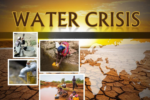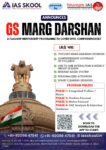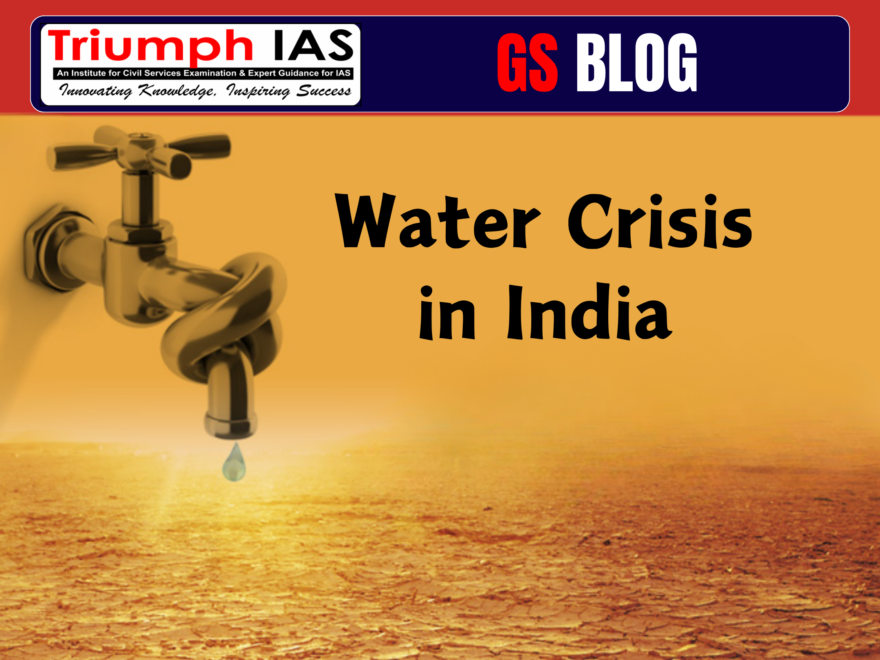
|
When considering the array of 51 optional subjects for the UPSC Mains Examination, Sociology consistently stands out as a top choice. Its inherent appeal lies in its accessibility and intriguing exploration of humanity and society, catering even to students from Science and Commerce backgrounds. With a well-defined UPSC sociology syllabus comprising only 13 units, Sociology can be comprehensively covered within 4 to 5 Month Comprehensive “Foundation to Finale” Classroom Programme, Many of Our Sociology Foundation Course Students have Cleared CSE 2023- Kajal Singh, First Attempt (Age 22) Mahi Sharma, First Mains (Age 23), Anand Sharma First Mains and Many Others. Previously also Many students like IAS Pradeep Singh, IAS Ashish, IPS Bindu Madhav, IPS Aparna Gautam, IPS Shahnaz Illyas got Success in CSE in First Attempt with Sociology Optional.
IAS Medha Anand, has get 310 marks in her optional subject sociology, 156 in paper – 1 & 154 marks in Paper-2 in CSE 2023. Notably, Sociology for UPSC has garnered a reputation as one of the Highest scoring optional subjects in the UPSC Main Examination, with numerous candidates consistently achieving 300+. Its popularity is evident in the fact that a significant proportion of top 100 rankers opt for Sociology as their optional subject, showcasing its high scoring potential, particularly for those not from sociology backgrounds. Moreover, relevance of Sociology Optional Syllabus for UPSC extends beyond the examination hall, enriching understanding across various aspects of life, from social and economic to political and cultural domains. In recent times, Sociology Optional has gained traction, aligning with the evolving trend of the UPSC Mains towards conceptual analysis. Unlike other optional subjects with unpredictable question patterns, Sociology offers stability and predictability, making it an attractive choice. This adaptability, coupled with its concise syllabus and relevance to both academic and social spheres, positions Sociology as the ideal optional subject for engineers as well as optional subject for commerce graduates and optional subject for science graduates seeking success in the Civil Services Examination. For those pursuing Sociology as an optional subject, accessing comprehensive Sociology optional notes and few good Sociology optional books, and previous years’ UPSC sociology optional question papers is pivotal for thorough preparation. Additionally, for aspirants seeking guidance, renowned educator Vikash Ranjan Sir at TRIUMPH IAS coaching institutes in Delhi, offer valuable support and resources. Vikash Ranjan Sir is the Best Sociology Teacher and Triumph IAS is the best sociology coaching in Delhi. If you are away from Old Rajendra Nagar, Delhi, you can still complete Journey of UPSC civil service preparation through online Sociology class The scientific nature of Sociology, coupled with its direct applicability to daily social interactions, renders it a subject that can be comprehended without extensive reference materials, distinguishing it from other optional subjects requiring extensive reading and research.
|
Water Crisis in India
Relevant for Civil Services Examination
GS Paper-3
(Issues Related to Planning and Mobilisation of Resources)

Water Crisis in India
A recent report by the Global Commission on the Economics of Water highlights a looming global water crisis, projecting that demand could outstrip supply by 40% by 2030, posing significant risks to food production and economic stability. For India, which is already facing challenges with inter-state water disputes and conservation efforts, the report emphasizes an urgent need for strong policy reforms to tackle mounting water stress.
Current Status of Water Availability and Water Stress Level in India
- Current Status of Water Availability:
India’s per capita annual water availability has decreased from 1,816 cubic meters in 2001 to 1,545 cubic meters based on the 2011 census. Projections from the Central Water Commission show further declines, with availability expected to drop to 1,434 cubic meters by 2025 and 1,219 cubic meters by 2050.
- Water Stress Indicators:
A per capita water availability below 1,700 cubic meters indicates water stress, and levels below 1,000 cubic meters signify water scarcity. Currently, India faces water stress, with significant regional disparities due to geographic and climatic differences. According to the 15th Finance Commission, approximately 600 million Indians were experiencing high to extreme water stress as of 2020.
Primary Water-Related Challenges Confronting India
- Groundwater Depletion:
India faces severe groundwater depletion, particularly in agriculturally intensive states. Overuse for irrigation has led to rapidly declining water tables, especially in Punjab, where extensive tube-well irrigation has caused groundwater levels to drop from an ideal 50-60 feet to depths of 150-200 feet as of 2019. This issue is critical, as groundwater serves as a major source for both agricultural and domestic needs.
- Urban Water Scarcity:
Rapid urbanization has worsened water scarcity in Indian cities. NITI Aayog’s Composite Water Management Index reveals that nearly 600 million people face high to extreme water stress. The 2019 Chennai water crisis, which required transporting water by train, highlights the severity of urban water issues. In 2023, inadequate rainfall led to a severe water crisis in Karnataka, prompting the government to designate it a drought year. Additionally, urban flooding has become increasingly problematic, with the Central Water Commission reporting 184 extreme floods in 2022 and 145 in 2021. A 2024 CAG report identified ongoing gaps in flood forecasting and management, despite prior recommendations.
- Irrigation Efficiency and Agricultural Water Use:
Agriculture accounts for approximately 78% of India’s water use, often inefficiently. The shift toward water-intensive crops and outdated irrigation practices aggravates water stress. NITI Aayog reports that Indian farmers use three to five times more water than farmers in the U.S., China, or Israel to achieve comparable crop yields. Recent estimates place India’s irrigation efficiency at around 38%, well below the global average of 50-60%, underscoring the need for efficient irrigation technologies and crop diversification.
- Water Pollution and River Rejuvenation:
India’s rivers, particularly the Ganga, face severe pollution due to untreated sewage and industrial waste. Over 100 towns and cities discharge domestic sewage into the Ganga. In 2022, the Central Pollution Control Board identified 311 polluted stretches across 279 rivers in 30 states and union territories, with Biochemical Oxygen Demand (BOD) levels above 3 mg/L. The Standing Committee on Water Resources highlighted extensive pollution in the Yamuna, largely from biomedical waste, construction debris, and untreated sewage.
- Climate Change Impact on Water Resources:
Climate change exacerbates India’s water challenges by increasing the frequency and intensity of extreme weather events, such as floods and droughts. The country’s dependence on increasingly erratic monsoon rains further heightens this vulnerability. In 2023, the monsoon season brought extreme rainfall variations, with some areas facing severe floods while others experienced drought-like conditions. Despite above-average rainfall in 2024, inadequate water management continues to worsen the crisis.
- Fragmented Governance and Poor Coordination:
India’s water sector suffers from a lack of coordinated governance, with multiple authorities overseeing water management, including the Ministry of Jal Shakti, state water boards, municipal corporations, and panchayats. In Delhi alone, seven agencies manage water resources, often leading to coordination failures. While the National Water Development Agency has identified 30 river interlinking projects under the National Perspective Plan (1980), only the Ken-Betwa Link Project has received approval, slated for completion by March 2030.
- Inter-State Water Disputes:
India faces numerous inter-state water disputes, which have grown more contentious as water scarcity increases. The Cauvery water dispute between Karnataka and Tamil Nadu is a prominent example, with Karnataka proposing to adjust surplus water against future allocations due to the 32% excess rainfall this monsoon, while Tamil Nadu insists on adhering to the 2018 Supreme Court ruling. The Krishna-Godavari dispute also exemplifies the need for effective interstate water governance and basin-wide management approaches.
- International Water Sharing Challenges:
India shares numerous river basins with neighboring countries, leading to complex transboundary water issues. The Indus Waters Treaty with Pakistan, established in 1960, has faced strain in recent years, with India issuing a notice in 2023 to amend the treaty, citing Pakistan’s “intransigence” over hydroelectric project disputes. The Teesta River water-sharing issue with Bangladesh remains unresolved, complicated by recent political tensions. Additionally, India lacks a comprehensive water-sharing agreement for the Brahmaputra with China, a concern given China’s dam-building activities upstream. These challenges necessitate diplomatic strategies and stronger transboundary cooperation frameworks in South Asia.

What measures should be taken?
- Modernizing Irrigation Systems:
Implementing precision irrigation techniques like drip and sprinkler systems can greatly enhance water efficiency in agriculture. Punjab’s “Paani Bachao, Paisa Kamao” initiative, which rewards farmers for conserving groundwater, serves as a promising model. Expanding such initiatives across India and promoting crop diversification away from water-intensive varieties could significantly reduce agricultural water demand. Linking farm subsidies to water-saving practices could further accelerate this shift.
- Urban Water Management and Recycling:
Urban areas should prioritize reducing water losses, implementing metering, and promoting recycling. For instance, Chennai’s wastewater recycling for industrial use, powered by Tertiary Treatment Reverse Osmosis (TTRO) plants that recycle approximately 20% of city sewage, serves as an effective model. Adopting similar measures nationwide, alongside Israel’s Shafdan facility model, could enhance water availability. Implementing rainwater harvesting, as mandated in cities like Bangalore, and utilizing smart management and leak-detection systems can also boost urban water security.
- Community-Led Groundwater Management:
Empowering communities to manage groundwater sustainably can yield long-term benefits. The Atal Bhujal Yojana, one of the world’s largest community-led groundwater initiatives, equips villagers with insights on water usage, enabling better budgeting of resources. Expanding such programs and incorporating technologies like remote sensing and GIS mapping for aquifer management can drive more informed local decision-making. Coupling this with awareness campaigns and capacity building for local water associations can support enduring sustainability.
- Water-Sensitive Infrastructure Design:
Incorporating water-sensitive infrastructure, like the Blue-Green Infrastructure Model, into urban planning could improve water resilience. This includes designing permeable surfaces for groundwater recharge, creating urban wetlands for natural water filtration, and integrating storm water management with urban green spaces. Indore’s revival of 330 traditional water sources has enhanced both water availability and urban aesthetics. By mainstreaming these strategies into municipal policies, cities across India can adopt more resilient designs. Additionally, climate stress testing and “sponge city” adaptations, based on China’s model, should be prioritized for all new infrastructure.
- Enhancing Water Storage and Recharge:
In a monsoon-reliant country, decentralized water storage infrastructure is crucial. Rajasthan’s Jal Swavlamban Abhiyan has demonstrated success in creating small-scale water storage systems, which have improved groundwater recharge and availability in arid regions. Combining traditional water harvesting with modern technology for optimal site selection and design can support a nationwide network of adaptable water storage structures.
- Data-Driven Water Management:
Utilizing technology for real-time monitoring and data-informed decisions is essential for water management. The National Hydrology Project, supported by the World Bank, provides real-time data for reservoir managers. Expanding such systems to cover major water bodies nationwide and incorporating AI can revolutionize management. For example, Bengaluru’s IoT-based borewell monitoring has improved distribution efficiency. A national rollout of such tools could enhance responsiveness and optimize resource allocation.
- Smart Water Pricing Reform:
Implementing a flexible water pricing model that adjusts based on availability, quality, and usage patterns can encourage conservation. Singapore’s tiered pricing model offers a valuable reference. Smart meters with AI-driven analytics can facilitate dynamic pricing, while strict requirements for industrial water reuse with supportive technology and incentives could promote conservation. Additionally, establishing water-reuse markets between industrial and agricultural sectors could create new efficiencies and support sustainable practices.
The urgency of India’s water crisis calls for swift government intervention and a unified national effort to enhance water management practices. Prioritizing effective governance, active community participation, and embracing technological innovation are essential to address current challenges and build a resilient water management system. This approach aligns with Sustainable Development Goal 6 (SDG 6), which strives for universal access to sustainable water and sanitation solutions.
The End of the Blog: Water Crisis in India

|
|
Frequently Asked Questions by
UPSC Sociology Optional Students
How to prepare for the Sociology Optional without coaching?
Understand the syllabus thoroughly: Familiarize yourself with the entire syllabus for both Paper I and Paper II. Download the official UPSC syllabus and use it as your roadmap. You can attend Sociology Orientation Lectures by Vikash Ranjan sir on YouTube
Build a strong foundation: Start with introductory textbooks and NCERT books to grasp core sociological concepts. You can start with Introduction to Sociology books
Choose reliable study materials: Select high-quality textbooks, reference books, and online resources recommended by experts. You can opt for Vikash Ranjan Sir Notes too.
Develop a study schedule: Create a realistic and consistent study schedule that allocates dedicated time for each topic. Stick to it and track your progress.
Take notes effectively: Don’t just passively read. Summarize key points, create mind maps, or use other note-taking techniques to aid understanding and revision.
Practice answer writing: Regularly write answers to past year question papers and model questions. Focus on clarity, structure, and critical thinking. Evaluate your answers for improvement.
Seek guidance: You can take free Mentorship on Sociology Optional preparation by Vikash Ranjan sir. Connect with Vikash Ranjan sir (7303615329) to share strategies, ask questions, and stay motivated.
Can I prepare for Sociology Optional without coaching?
Absolutely! Many aspirants successfully clear the exam through self-study. However coaching can provide structure and guidance, for time bound preparation.
What are the benefits of preparing without coaching?
Cost-effective: Coaching can be expensive, and self-study allows you to manage your resources efficiently.
Flexibility: You can tailor your study plan to your individual needs and pace.
Independence: You develop critical thinking and research skills, valuable assets for your career.
What are the challenges of preparing without coaching?
Discipline and motivation: You need self-discipline to stay on track and motivated without external guidance. Coaching and Teacher keeps you motivated.
Access to resources: You may need to do extra research to find quality study materials and answer-writing practice opportunities. Teacher help you on this respect.
Doubt clearing: You might lack immediate access to someone to address your doubts and questions. Teacher like Vikash Ranjan sir is accessible to his students 24×7 Mo- 7303615329
What additional resources can help me?
Vikash Ranjan Sir’s YouTube channel and website: Offers free Sociology lectures, study materials, and guidance.
Triumph IAS website: Provides past year question papers, model answers, and other helpful resources.
Public libraries and online databases: Utilize these resources for access to relevant books, journals, and academic articles.
Follow us :
🔎 https://www.instagram.com/triumphias
🔎 www.triumphias.com
🔎 https://www.youtube.com/c/TriumphIAS
🔎 https://t.me/VikashRanjanSociology

















